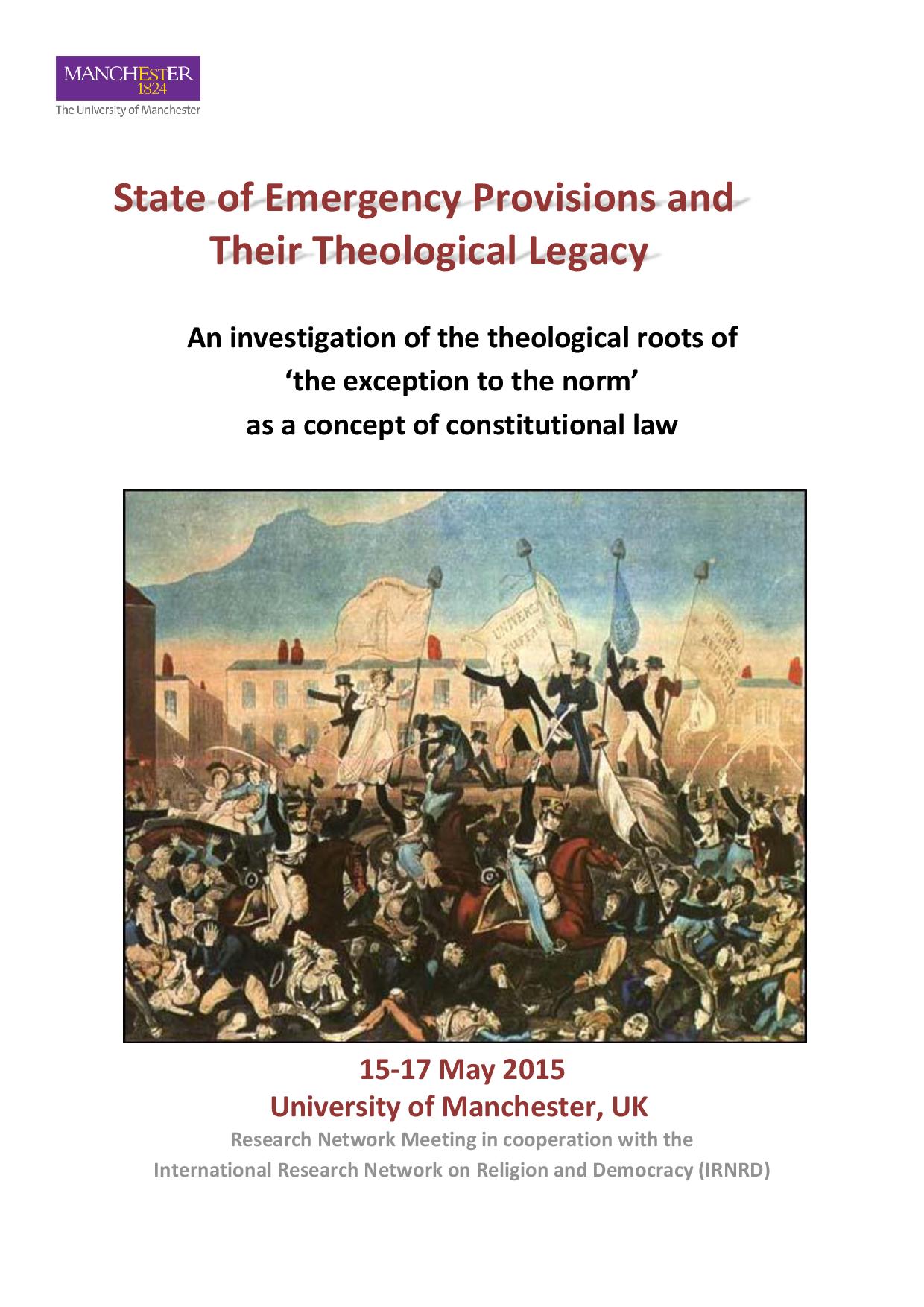 March 9, 2015
March 9, 2015 The conference and network meeting of the International Research Network on Religion and Democracy will focus on ‘state of emergency provisions’ and their religious and theological background. The key question is: What are the criteria to legitimately deviate from the normal state of affairs and to make an exception normative? A legitimate deviation from law or the existing order entails at least three elements:
a) The existing order is under threat and therefore swift action is needed;
b) Who is authorised to declare a state of emergency and what are the moral prerequisites?
In a situation when such deviation from the norm or existing law is required, ethical issues arise. Who is entitled to legitimately breach the existing norm/law, which civil rights might be suspended in order to successfully encounter the threat; and finally:
c) What defines the threat, which legitimises extraordinary measures?
In Constitutional Law and Political Theory the ‘state of emergency’ is a well-known paradox i.e. the concrete circumstance that demands a legitimate breach of an existing order to secure the existence of a lawful order. Given the classic criteria for a state of emergency, this project aims to uncover the theological basis, such as equity, asylum, grace and pardon etc. of the juridical concept of a state of emergency in all its facets.
This will be also the focus of the public lecture on Saturday May 16th 2015 "Can Religion replace the Constitution"?
Hosts:
Research Network for Religion and Political Culture
Globalisation Studies Groningen
International Research Network on Religion and Democracy
For more information see:
http://emergencymapping.org/conference.html
 Email |
Email |  Post a Comment
Post a Comment 

Reader Comments